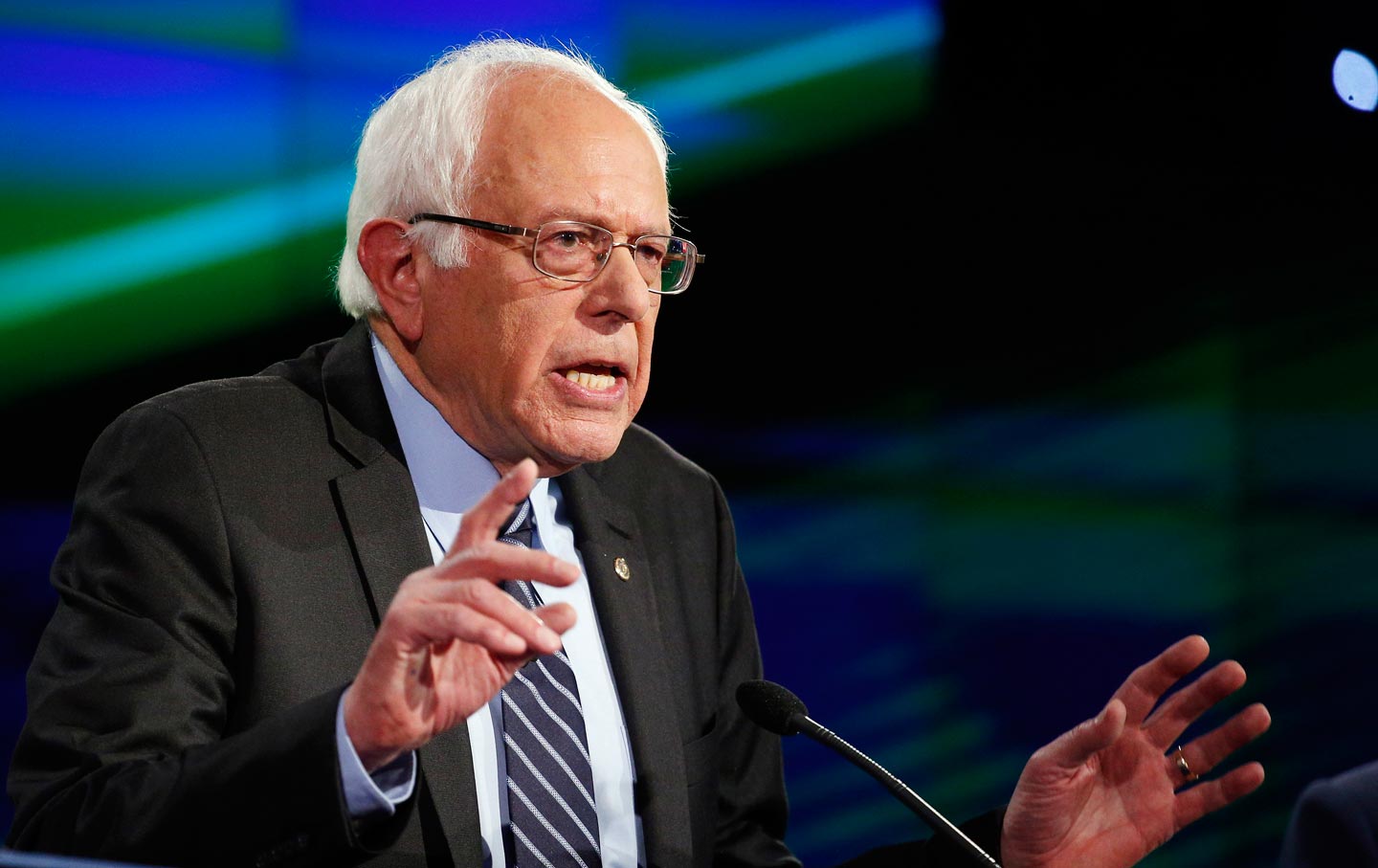Although my policy preferences more closely match Bernie Sanders than any other candidate — an unscientific Facebook survey put me something like 96% in line with Sanders — I’m not excited by his presidential candidacy. I have given him five dollars (as I also gave to Martin O’Malley and Hillary Clinton) to get on his mailing list. But, he’s not my choice in the Democratic primaries because, like I viewed Lawrence Lessig, I don’t view Sanders as a serious candidate.
Oh, I think Sanders is absolutely serious about winning, but I don’t think he’s serious about governing. Sanders has an interesting mix of policies he’s championing — single payer health care, a $15 minimum wage, breaking up the big banks — that I happen to favor. (Though I agree with Paul Krugman that relitigating health care reform at this moment is a waste of time and political capital, I ultimately support single-payer as a political goal.) However, I see no path through Congress that would pass those policies into law. A House in Republican hands would never pass anything that would break up the banks or implement single payer. A “political revolution” (Sanders’ term), notes Jeet Heer in The New Republic, won’t shepherd a bill through committee, won’t get a bill through both the House and the Senate, won’t get the legislation to the President’s desk. As Amber Phillips wrote in the Washington Post yesterday: “Sanders is the candidate of grand proposals and political revolution — a word he spoke repeatedly Sunday night — while Clinton is more focused on pragmatism and building on what President Obama has already done. In other words, Clinton is the candidate who is more realistic about what can be accomplished in today’s divided political landscape.”
This isn’t a new argument; Jamelle Bouie made it in Slate in October. Intuitively, I’ve felt this for months. I think Sanders’ ideas are great and I support them, but they won’t happen in the current political environment. Jonathan Chait in New York makes the same argument in an article with an unfortunately click-baity headline that drew a rebuttal from Gawker. Weirdly, I don’t fundamentally disagree with either piece. If someone supports Bernie Sanders’ policy positions, they should absolutely vote for him in the Democratic primaries, but they should also be realistic that those policies are unlikely to be enacted if Sanders does become President in 2017.
Sanders would, at best, be a status quo president. The last five years of Obama’s presidency show us what a Sanders presidency would be like — his policies wouldn’t be passed into law, his veto pen would be used to prevent a hostile Congress from repealing Obamacare or passing a budget that would gut Social Security and Medicare, his executive appointments would be slow-walked by the Senate, his judicial nominees will languish. The gap between the ideal of a Bernie Sanders presidency and the reality of a Bernie Sanders presidency would be so wide that he would almost certainly be considered a failed president; he would be considered a failure by the right automatically, and he would be considered a failure by the left because he never achieved any of his policies.
I don’t expect Hillary Clinton to accomplish anything, either, but I don’t believe that she expects to accomplish anything except at the margins. Sanders, on the other hand, I don’t believe recognizes that he won’t, nor do I believe that his most fervent supporters recognize that, either. What I’m reminded of with Sanders’ fervent supporters, at the moment, is the most fervent Obama supporters in 2008, the ones who quickly became disillusioned that the ACA wasn’t more liberal than it was, that he didn’t break up the banks, that he didn’t bail out Main Street. The reality of Obama’s presidency is that he prevented the Republican Party from doing more damage to fabric of American society than they did. He was the bulwark.
The 2016 election can go two ways — a Democrat (either Hillary Clinton or Bernie Sanders) is elected and we have a “caretaker” presidency of sorts that won’t advance any progressive causes for structural political reasons, or a Republican is elected and we see major progressive legislation (Obamacare for a start, but also Medicare and possibly Social Security) repealed or gutted. The choice facing the country is simple — stay on the path we’re on or rewind the 20th-century. It’s that stark.
That’s why I’m not on the Bernie bandwagon. He’s a Quixotic figure. Maybe we do need more dreamers with vision running for office. On that level, I respond quite well to Sanders. He’s saying things that need to be said. But I don’t see how Sanders’ dream becomes reality. There’s simply no path to make it happen. That’s why Bernie Sanders is not my choice.
